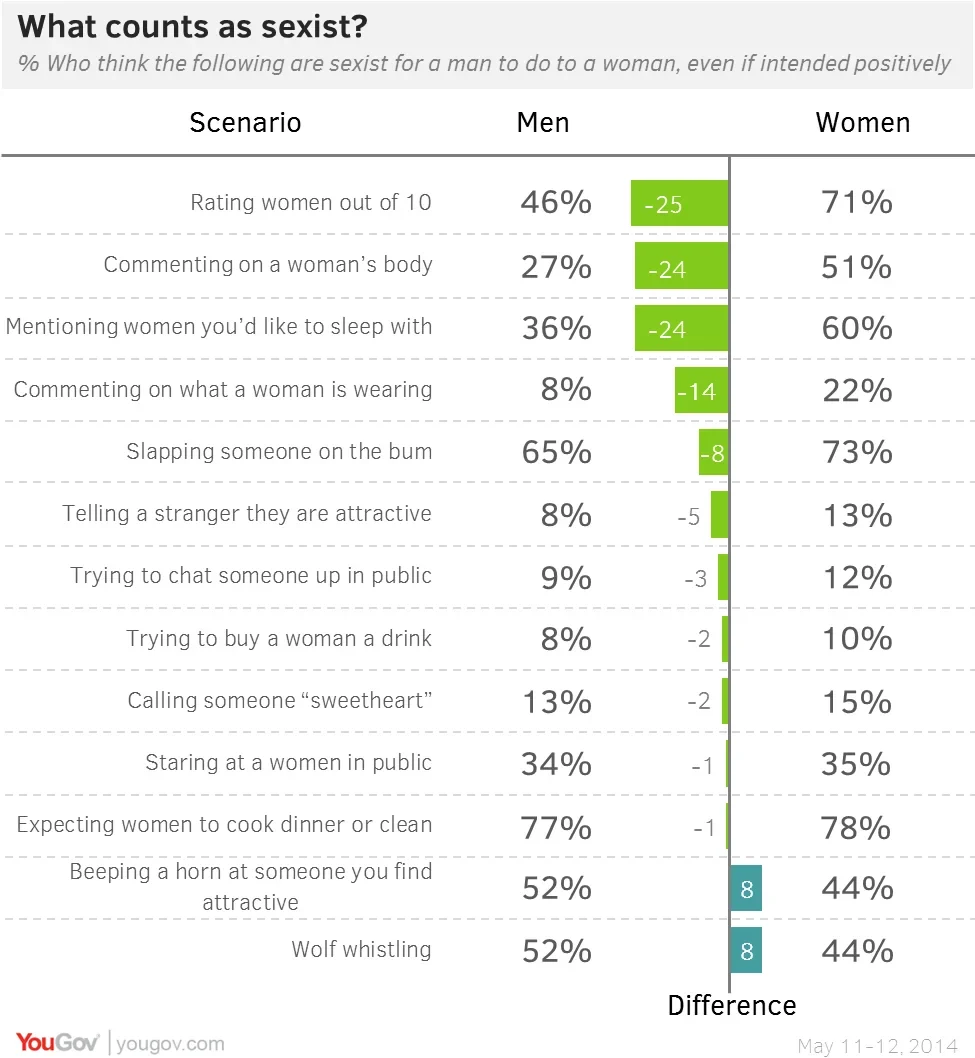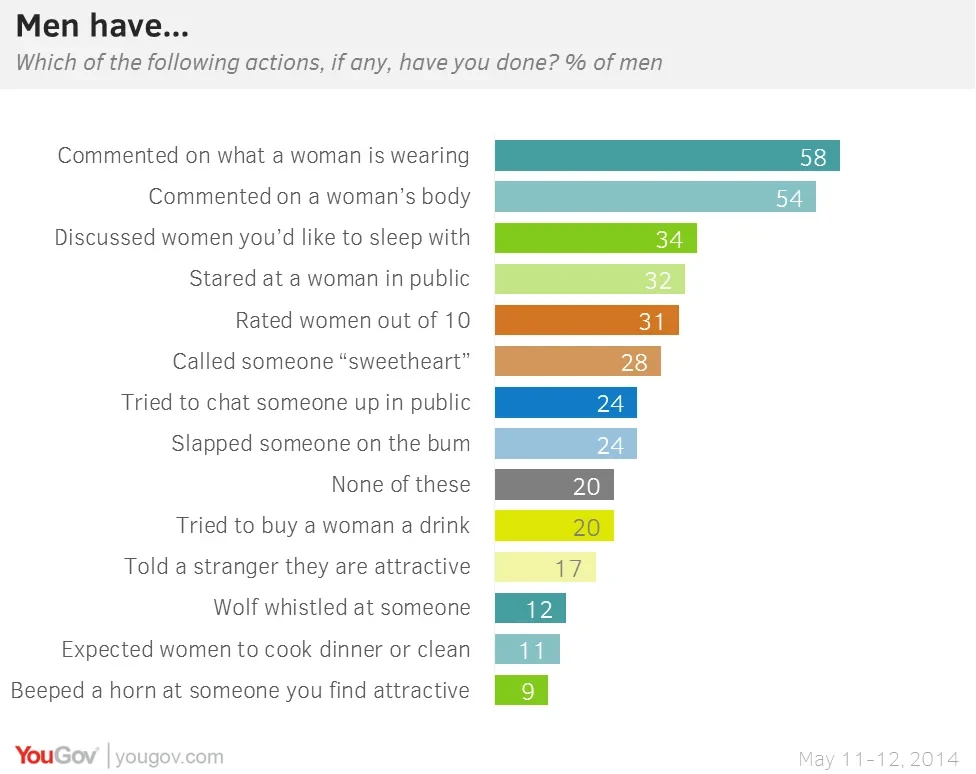Men are considerably less likely than women to think rating them out of 10, commenting on their bodies and mentioning women they’d like to sleep with is sexist
In April 2012 Laura Bates set up The Everyday Sexism Project – 20 months after it had 50,000 entries. The website catalogues users’ instances of sexism; some are about abuse and assault, but others, Bates recalls, are “tiny pinpricks… so niggling and normalised that to protest about each one felt trivial. Yet put them together, and the picture was strikingly clear. This inequality, this pattern of casual intrusion… was sexism.”
A new YouGov survey poses 13 actions to the public, asking if each one is sexist for a man to do to a woman, “even if intended positively”. It finds some striking differences in what is considered sexist in Britain.
One Everyday Sexism user complains about “it being acceptable for boys in my school to have ‘lists’ of potential girls they ‘have a chance with’ and rating girls out of 10”. Only 46% of men think rating women out of 10 is sexist. 71% of women, on the other hand, consider this is as sexism – almost as many as say expecting a women to cook dinner or clean is sexist (78%).

And only 36% of men think mentioning women they’d like to sleep with is sexist, compared to 60% of women.
Most women (51%) also think men commenting on women’s bodies is sexist, however only 27% of men think this counts.
Men are, to varying degrees, less likely than women to think 11 of the 13 actions are sexist. The remaining two – wolf whistling and beeping a horn at someone found attractive – are actually thought of as sexist by more men (52%) than women (44%).
The three actions with the greatest difference in opinion mentioned above are also some of the most performed actions by men. 54% of men have commented on a woman’s body, 31% have rated women out of 10 and 34% have discussed women they would like to sleep with.

A recent BBC Two documentary, ‘Blurred Lines: the New Battle of the Sexes’, discussed the ‘rise’ of misogyny in Britain. Indeed, 18-24 year old men are more likely than the average man to have done 8 of the 13 actions. And 18-24 year olds in general (men and women) are less likely than average to think 9 of the 13 actions are sexist.







